Workshops
MODULE 1: In nine workshops with different contextual and media focal points, participants will work on their own project accompanied by instructors. The participants’ projects can be realized in the direct neighborhood or the landscape around Tenna. There is also a seminar room and a library with specialist literature. At the end of the academy, the participants will present their projects to the staff and other group members.
The participants apply with their own proposal or a concept for a project. On this basis, the jury selects the participants and assigns him or her to an instructor and a workshop. The assignment of instructors and workshops can be revised at a later point if there is a good reason for it. The following options are available:
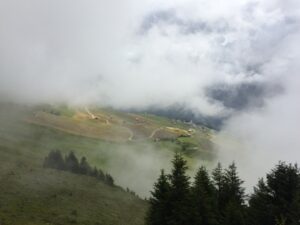 Workshop I: Environmental: Installation & Sculpture
Workshop I: Environmental: Installation & Sculpture
Mentor: Matthias Bildstein (Bildstein / Glatz) (AT)
Safiental is a special place. You’ll get a chance to learn about the environment up here and start a new work or continue your practice. In this workshop we’ll reflect each others approach in brief meetings parallel to your development. I am curious about your thoughts and work and I‘m looking forward to intense sessions. Together we’ll push art forward.
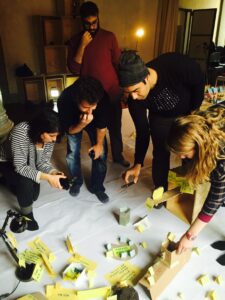 Workshop III: Landscaping: Mapping the research process
Workshop III: Landscaping: Mapping the research process
Mentor: Sally De Kunst (CH/BE)
In a research process, mapping allows to pool thematic, practical, individual and collective forms of knowledge. The aim of this workshop is to build the elements of the research spatially, using foraged and other materials, i.e. to position them to highlight and discuss the potential relationships between them. The landscaping model is freely inspired by the Actor-Network Theory developed by Bruno Latour and Michel Callon, among others. This sociological approach takes into account and associates humans and “non-humans” of all kinds, as well as forms of discourse.
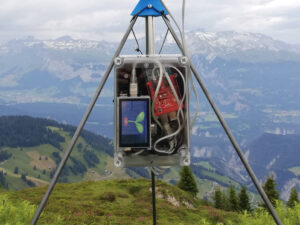
Workshop IV: Hacking Nature
Mentor: Fragmentin (CH)
How could we observe, measure and look at Alpine natural landscape differently through the lense of digital technology? Which new aesthetics could emerge from combining this specific graubünden nature with technological breakthroughs?
Using a bunch of different low & high tech tools, sensors and software, the participants will be invited to explore – with the help of the three artists & programmers of Fragmentin – the rich natural area of Safiental and create something out of it.
The output is relatively free, it could take the form of an object, a sculpture, a piece of software or a performance.
The artist trio will also bring an axidraw pen plotter machine to give the possibility of the participants to create beautiful maps of other topic related drawings.
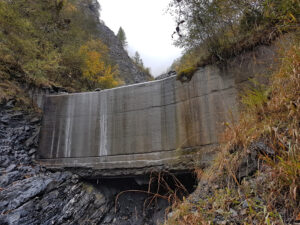 Workshop V: Local Context
Workshop V: Local Context
Mentor: Gabriela Gerber & Lukas Bardill (CH)
The focus is layed on rural space with its geographical, cultural and social characteristics. The context
as requirement for site specific interventions takes place for scouting in the field, for encounter local
people and to become acquainted with the knowledge of contemporary and historical conditions.
(Aclatobel, Safiental 2018. Fotografie: Gabriela Gerber & Lukas Bardill.)
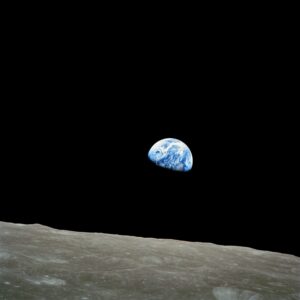 Workshop VI: Theorizing Landscape
Workshop VI: Theorizing Landscape
Mentor: Hanna Hölling (CH/UK)
Since every landscape can be subsumed under scientific, artistic or cultural and historical points of view, how to provide a meaningful conceptualization of landscape, and art in the landscape? The concept of landscape, both in general and in the context of the visual arts, has undergone a great transformation. Our current conceptions of landscape are still strongly influenced by Romantic ideas which combined the sublime with the idyll. In contrast, the geographical concept of landscape is relatively new, a phenomenon of modernity. Today, landscape is understood as the sum of people’s imaginations that cannot be disassociated from affect, memory and experience. In this workshop, we will strive to think landscape, and art in the landscape, through the lens of cultural and critical theories. This module will entail readings, wanderings, self-study and group discussions. Its outputs may entail forms of interpretative texts, films, displays and performances.
Workshops that had to be reduced due to COVID-19 pandemic:
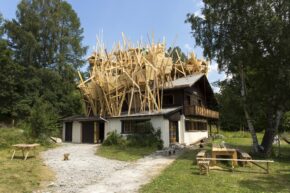 Workshop II: In Wood We Trust
Workshop II: In Wood We Trust
Mentor: Gregory Chapuisat (Les Frères Chapuisat) (CH)
The good old battle between control and letting it go. Protocols, empirical processes and happy accidents. How do we define our choices in the doing?
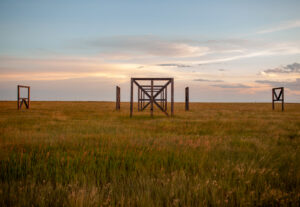 Workshop VII: Rural International
Workshop VII: Rural International
Mentor: Richard Saxton (USA)
New realities of art and the rural environment are explored with reference to collaborative and context-based art practices. International in scope, we’ll look at the rural environment from fringe topic to central in the discussion of contemporary art engaged with our planet. Saxton will use the work of his studio M12 and projects from the US, Sweden, Australia, Bolivia and the Netherlands as case studies. We will also look at rural materials and discuss current trends such as this years “Countryside” exhibition by Rem Koolhaas and Guggenheim Museum, the collected documents of “the Rural” from MIT Press, Documents of Contemporary Art, Whitechapel Gallery.
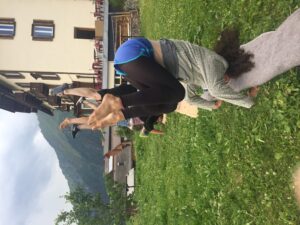 Workshop VIII: Mediation in Environmental Art
Workshop VIII: Mediation in Environmental Art
Mentor: Ella Tetrault (CAN)
Through performance theory, art education and traditional ecological knowledge, this workshop aims to create a working atmosphere that explores environmental narratives through introducing strategies in arts education and performance. New tendencies in Land and Environmental art are explored with reference to collaborative and participatory practices and the notion of co-authorship. We will borrow from, trouble, subvert, or satirize environmental narratives and aesthetics through site-specific research, a process of fictioning and the exploration of counter-narratives to tease out both the progressive and transgressive aspects of land and environmental practices. The individual and collective projects of this workshop could also focus on the more didactic or even explanatory aspects of a participant’s work while at the Alps Art Academy with tools from transformative and deconstructive educational models in mind.
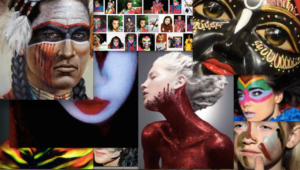 Workshop IX: Bodies as Landscapes
Workshop IX: Bodies as Landscapes
Mentor: Lucie Tuma (CH)
Bodies are generated through techniques, not the other way around. What has been claimed as status quo in Media Studies for a long time, is quite applicable to the context of Dance. Techniques such as walking or strolling in a particular environment do not only influence moods and affective regimes, more so are bodies being generated as a result of complex and entangled processes. Landscape. Taking the body as a landscape, as an amalgam of human and non-human processes, we will in investigate the division between nature and culture as a human-made fabrication. Reading historical and contemporary positions from Humanities and Philosophy, we will look for an understanding of human existence in its expansion onto non-human and post-human to realms. Bodies as Landscapes is an exploration both in theory and practice throughout different settings around perception and experience, formatting and processing as well as artistic production and their materials.
